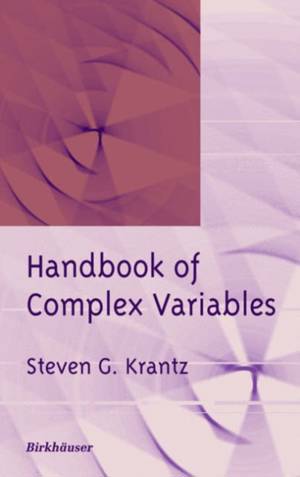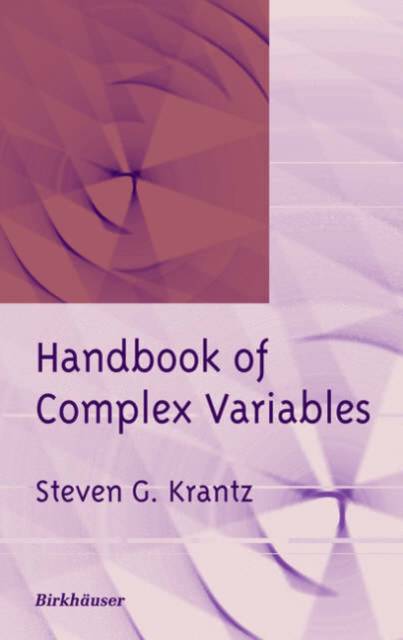
- Afhalen na 1 uur in een winkel met voorraad
- Gratis thuislevering in België vanaf € 30
- Ruim aanbod met 7 miljoen producten
- Afhalen na 1 uur in een winkel met voorraad
- Gratis thuislevering in België vanaf € 30
- Ruim aanbod met 7 miljoen producten
Zoeken
Omschrijving
This book is written to be a convenient reference for the working scientist, student, or engineer who needs to know and use basic concepts in complex analysis. It is not a book of mathematical theory. It is instead a book of mathematical practice. All the basic ideas of complex analysis, as well as many typical applica- tions, are treated. Since we are not developing theory and proofs, we have not been obliged to conform to a strict logical ordering of topics. Instead, topics have been organized for ease of reference, so that cognate topics appear in one place. Required background for reading the text is minimal: a good ground- ing in (real variable) calculus will suffice. However, the reader who gets maximum utility from the book will be that reader who has had a course in complex analysis at some time in his life. This book is a handy com- pendium of all basic facts about complex variable theory. But it is not a textbook, and a person would be hard put to endeavor to learn the subject by reading this book.
Specificaties
Betrokkenen
- Auteur(s):
- Uitgeverij:
Inhoud
- Aantal bladzijden:
- 290
- Taal:
- Engels
Eigenschappen
- Productcode (EAN):
- 9780817640118
- Verschijningsdatum:
- 14/10/1999
- Uitvoering:
- Hardcover
- Formaat:
- Genaaid
- Afmetingen:
- 161 mm x 241 mm
- Gewicht:
- 566 g

Alleen bij Standaard Boekhandel
+ 363 punten op je klantenkaart van Standaard Boekhandel
Beoordelingen
We publiceren alleen reviews die voldoen aan de voorwaarden voor reviews. Bekijk onze voorwaarden voor reviews.











